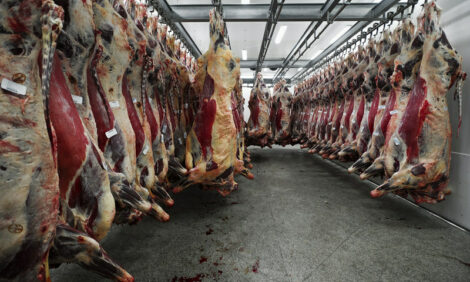



Presenting Clean Animals for Slaughter
UK - At this time of year the cleanliness of stock being presented for slaughter becomes an increasing issue for both producers and processors alike. EBLEX is therefore urging producers to ensure stock meet the guidelines for cleanliness to avoid additional costs at slaughter. The Food Standards Agency, who are present in all abattoirs to enforce hygiene controls, have clear guidelines for livestock producers detailing the cleanliness requirements of both cattle and sheep at slaughter. Dirty animals increase the risk of carcase contamination by food poisoning organisms, such as e coli and clostridium, during the dressing process. This presents real risks for public health and consumer perception of meat and meat products.
The Clean Livestock Policy has five levels of cleanliness for cattle and sheep, with ‘1’ being clean and dry, and ‘5’ being very dirty and wet. Only animals in categories ‘1’ and ‘2’ can be slaughtered without restrictions, with animals falling into the higher categories needing some additional controls, for example clipping or reducing kill line speed. These additional restrictions increase costs for the processor which may be passed back to the producer, resulting in reduced returns.
The incidence of dirty animals is relatively low, reflecting the effort that farmers put in to ensure animals are clean, but with pressure on the supply and cost of straw it is important to continue these very high standards.
Eblex has recently produced a manual looking at alternative bedding materials to straw. This can be downloaded from the literature area of www.eblex.org.uk/returns.
Further practical advice on selection for slaughter can be obtained free of charge by levy payers through a range of EBLEX Better Returns literature available at www.eblex.org.uk/returns
| TheCattleSite News Desk | Read more EBLEX News here |


